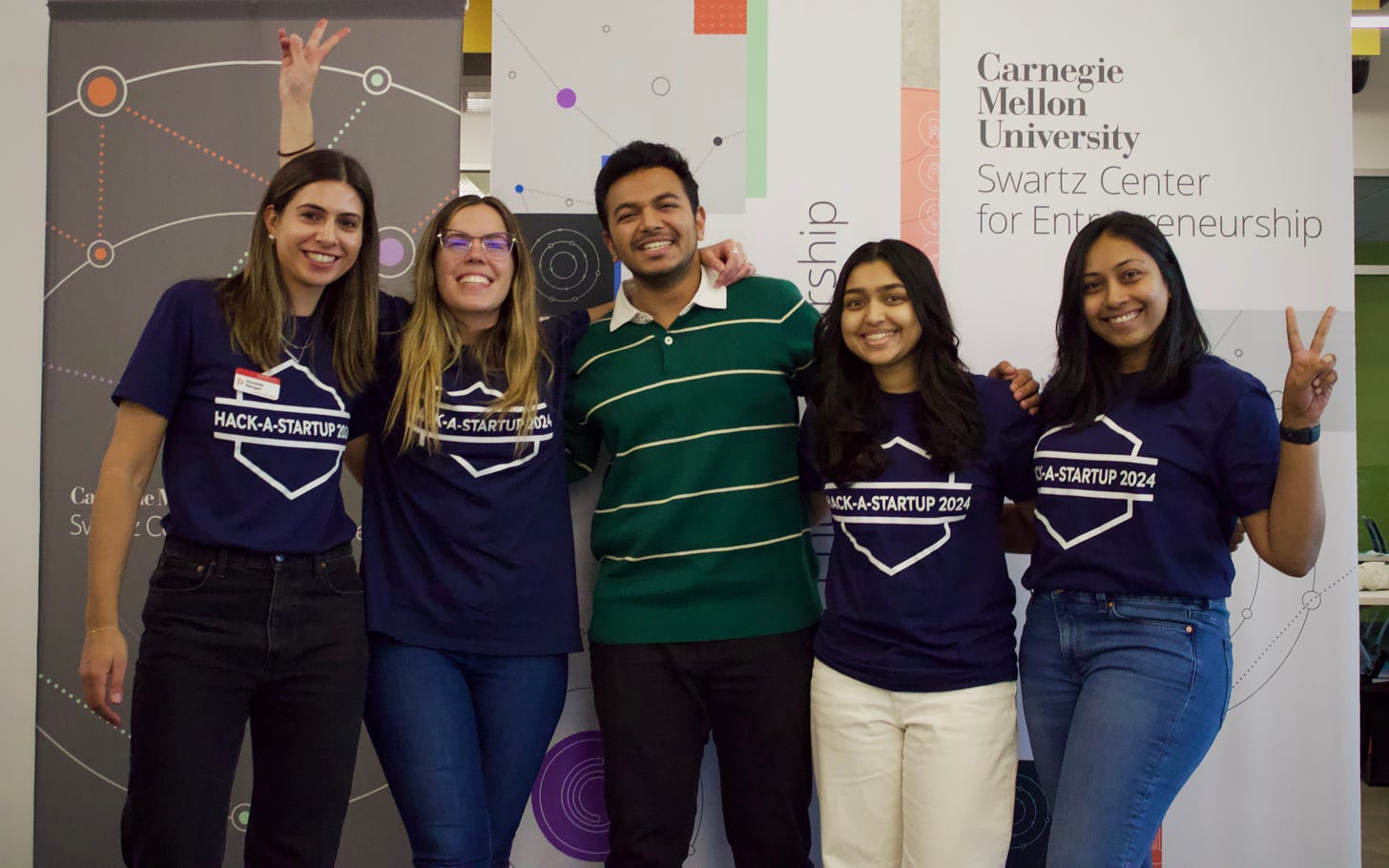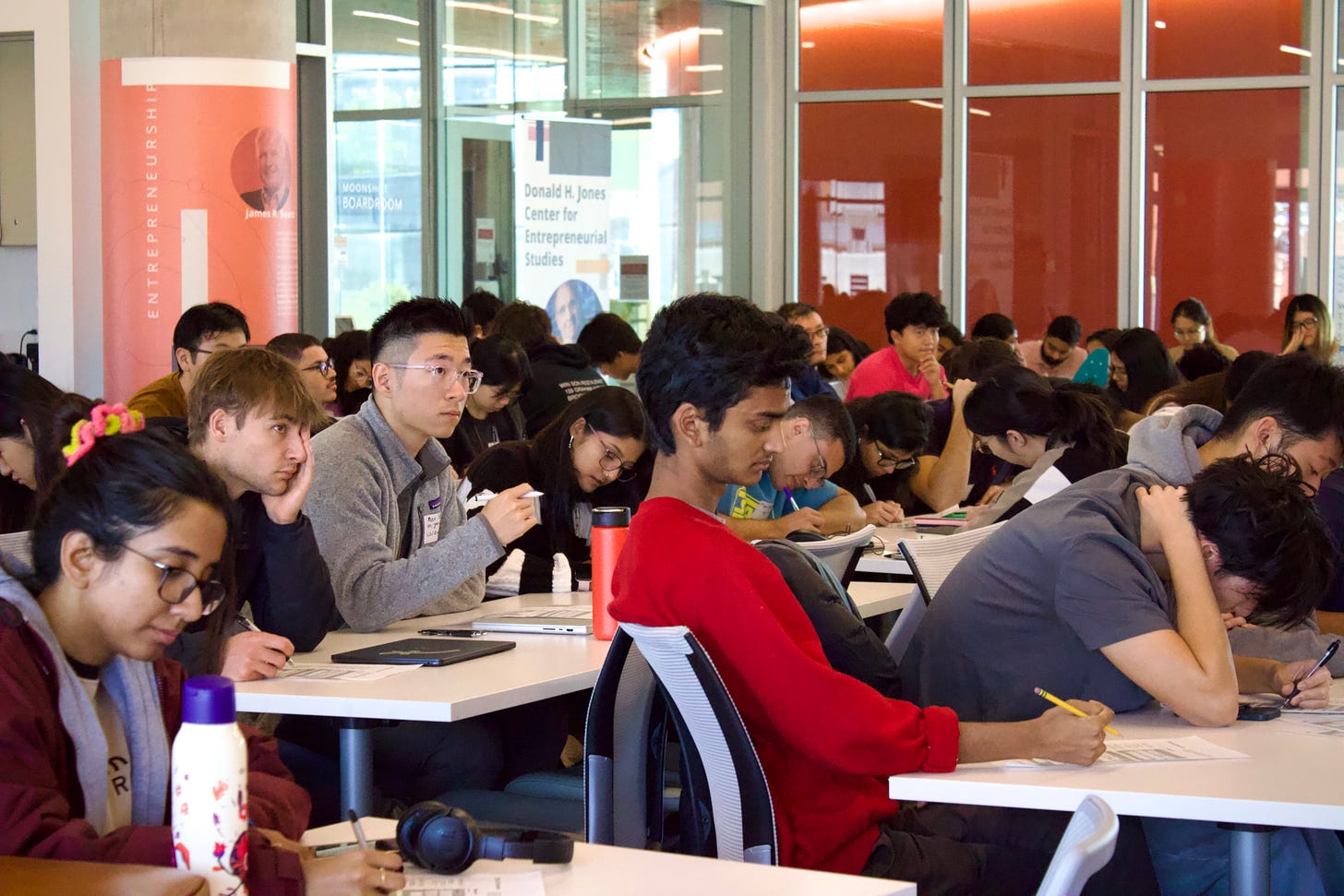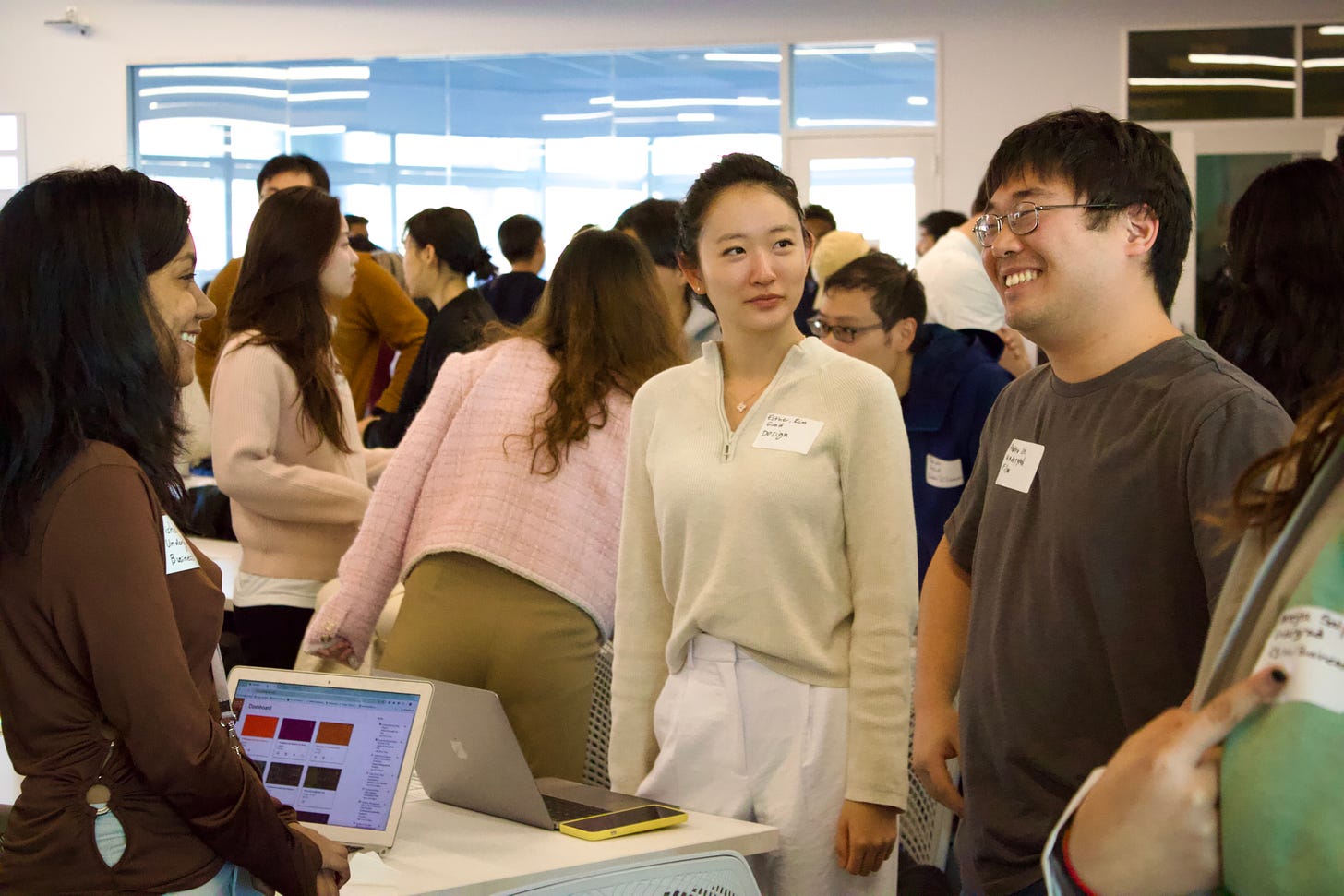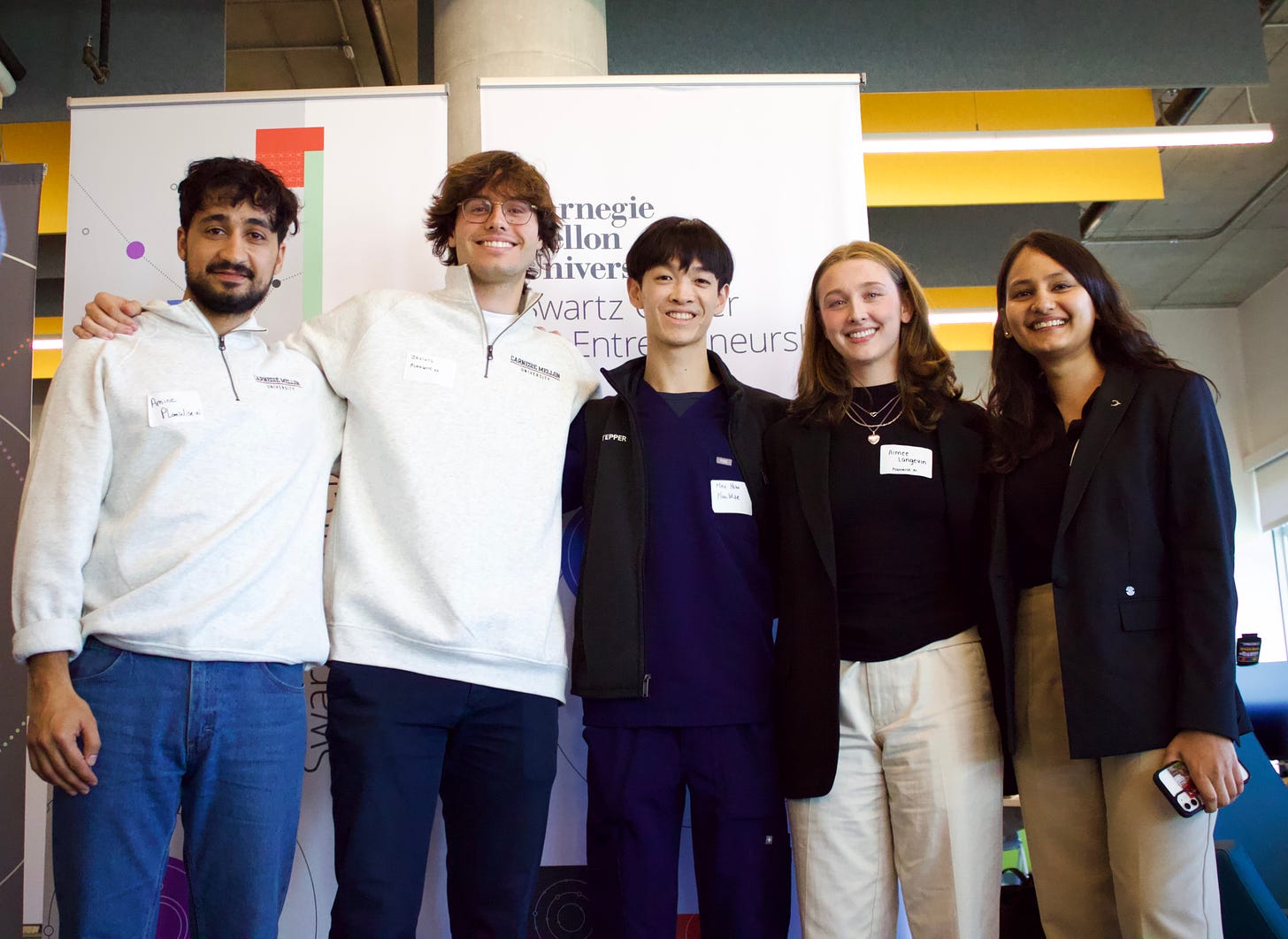CMU's Hack-a-Startup 2024: A Two-Week Sprint of Teamwork and Entrepreneurship
This past weekend, CMU hosted its annual Hack-a-Startup, a two-week competition to help students turn their ideas into scalable startups. With over 200 participants from fields such as artificial intelligence, healthcare, robotics, and software engineering, the event is a key initiative in fostering entrepreneurship and innovation at CMU. Organized by the Graduate Entrepreneurship Club, led by Amanda Manget, Daniela Decoud, and Nisarg Doshi, Hack-a-Startup provides a structured environment for students to refine their concepts, garner user feedback, and take their first swings at commercializing their ideas. Participants work to develop their early prototypes, receive mentorship from industry experts, attend specialized workshops, pitch their ideas, and prepare for a final pitch competition where the top teams will compete for $10,000 in prizes. This year’s event is sponsored by Accel, the Pittsburgh Regional Health Initiative’s Patient Safety Technology Challenge, and InnovatePgh.
photo: Lananh Doan
The event kicked off with over 200 participants forming more than 25 startups over the first weekend. These teams are working across various disciplines to develop real-world solutions that address challenges in sectors like healthcare, AI-driven platforms, robotics automation, and more. After two weeks of intense work and collaboration, 15 finalist teams will advance to the final pitch competition on November 16th
Behind the scenes, a dedicated group of volunteers—Anika Halappanavar, Jahnavi Patel, Nidhisha Voonna, Shubhaa Chawla, and Lananh Doan—played an essential role in ensuring the event ran smoothly. From coordinating logistics to supporting participants’ needs throughout the competition, these volunteers are instrumental in making the Hack-a-Startup event a success.
photo: Lananh Doan
Building Practical Solutions
Hack-a-Startup is designed to push participants beyond theoretical ideas and toward building practical solutions that address real-world challenges. Throughout the event, participants engage in five specialized workshops covering essential topics such as product-market fit, go-to-market strategies, and fundraising. These workshops were led by commercial leaders like Alison Alvarez (CEO of BlastPoint), CMU’s David Goyette , and Adam Paulisick (Cofounder of Skillbuilder. io) who bring deep expertise in areas like AI implementation, healthcare technology integration, and business development. Each team works closely with assigned mentors who help them refine their business models and technical roadmaps. The event will culminate in a final pitch competition where 15 teams will present their startups to a panel of judges from the tech and investment sectors. The judging panel included notable figures such as Adam Paulisick (SkillBuilder.io), Caiden Joseph Lukan (Accel), Arthur Sugden (Allref), and Zak Slayback (1517 Fund).
photo: Lananh Doan
Meet the Finalist Teams
The 15 finalist projects emerging from Hack-a-Startup reflect CMU’s strengths in applying advanced technology to solve complex problems across industries:
N.Care: A platform that automates nursing documentation tasks to reduce administrative burdens and allow nurses to focus more on direct patient care. Competing in the Patient Safety Technology Challenge.
PlanWise: An AI-powered tool that generates evidence-based dental treatment plans aimed at reducing malpractice risks while improving diagnostic accuracy. Competing in the Patient Safety Technology Challenge.
YAML (Yet Another Method for Learning): A speech AI platform designed to help users improve pronunciation across different dialects and accents. This tool has applications in both education and healthcare. Competing in the Patient Safety Technology Challenge.
BeyondTheVibes: A marketplace where users can list and book experiences at affordable prices.
Coolie: An airport luggage assistance service that uses IoT technology for real-time tracking and automated dispatching.
EchoKeys: A tool combining hardware with AI software to help users learn piano through real-time feedback on finger placement.
EverFit: A platform that integrates wearable data with personalized health insights based on users’ activity patterns.
Gumbo: A data aggregation platform that collects publicly available information from across the web into custom datasets ready for analysis.
LAWN-E: An autonomous robot designed for lawn mowing and weeding tasks using computer vision.
NearBuy: An app that connects nearby shoppers to share shipping minimums, reducing costs while encouraging community interaction.
Nutra: A solution that helps users find affordable fresh food based on location and dietary preferences.
Solstis: A no-code automation tool that integrates with project management software using AI-powered workflows.
Text to Utility: A conversational interface powered by large language models (LLMs) that simplifies everyday tasks like booking rides or ordering groceries.
The Keystone Series: A training pipeline for high school students interested in esports careers.
WattWise: A supply chain optimization tool that integrates disparate systems into a unified platform for real-time decision-making.
photo: Lananh Doan
The event organizers and GEC Leadership invite all community members to join them for the Hack-A-Startup Finals event on Saturday, November 16th at the Swartz Center for Entrepreneurship







